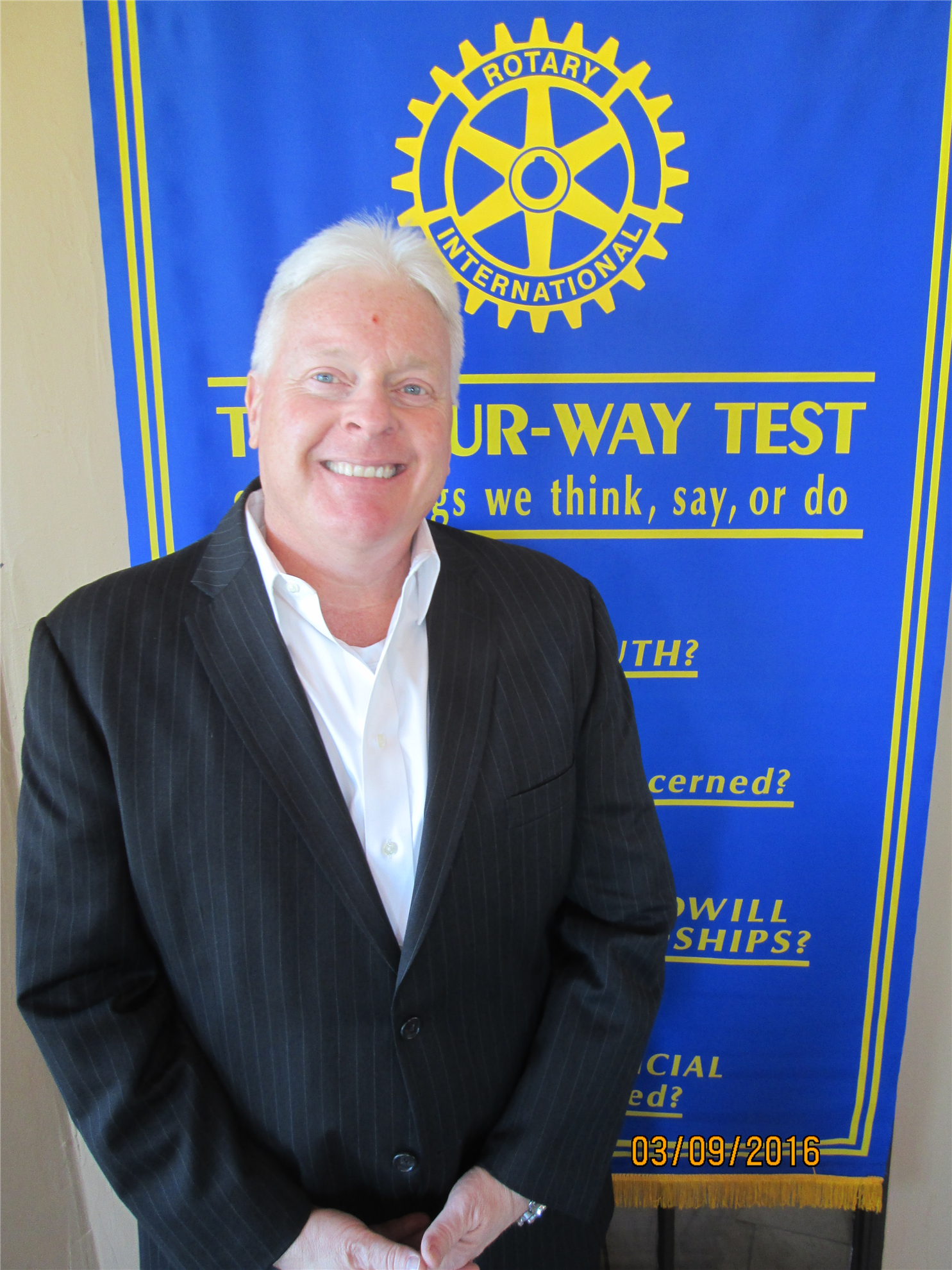SPEAKER
Harvey Clark introduced our guest speaker, John Iannarelli, recently retired from the position of
assistant special agent in charge of the FBI, Phoenix division.
John started his career as a police officer, then became an attorney and practiced law before joining the FBI for 20 years; “So I’ve gone from one hated profession to another.” He now works as a security consultant. His main client (that he can talk about) is the NFL. “It’s refreshing to be in a profession now that NEVER gets bad publicity.”

The first case that John worked after joining the FBI was the Oklahoma City bombing. Despite rumors that the FBI wasn’t doing enough, they actually had 1,200 agents – fully 10% of the FBI’s force – assigned and actively working the case for three years. “We interviewed 43,000 people… we actually came up with more than 1 billion pieces of paper produced as a result of this investigation. There was a big deal at the time that ‘the FBI didn’t turn everything over to the defense.’ It came to about three banker boxes of paper that were missed in a warehouse full of paper. And what the FBI had missed were newspaper articles cut out of the paper documenting the Oklahoma City bombing.” It was an intensive investigation, with a lot of effort and people involved. “What was the takeaway? Everybody had to do their job. We were always told how important it was that we cooperate and work with one another so that we can accomplish the mission. We may not have liked each other all the time, but teamwork is what you get through for the bottom line of what needs to be done.”
In another incident, John was working with an informant to collect evidence on some corrupt police officers who were responding to burglary calls, stealing additional valuables from the scene, reporting the items as stolen in the burglary, and then pawning those items for cash. When the time came to set up the final sting and apprehend the bad guys in blue, “Elvis” (code name) was wired so that FBI officers could get the conclusive evidence they needed – but Elvis got the idea that, if the FBI was listening in on the conversation, someone else might also be listening in. So he wrote a note telling the suspects, “Don’t know who might be listening,” and proceeded to conduct the whole transaction with notes, thus negating the point of the operation. No talking = no recording = no evidence. “So who’s responsible here? I was. I knew that Elvis was not the sharpest tool in the shed, but it never occurred to me to say, ‘By the way, make sure you speak…’ Seems like common sense, but you have to look at the lowest common denominator.” From this case, “I learned to plan for all contingencies. Most importantly, at the end of the day, I had to step up and say, ‘It’s my fault guys, not his; I’m responsible.’ Taking responsibility for your actions is very important.”
“We never close a case in the FBI until there is a resolution.” Another case John worked in Michigan involved the kidnapping of a four-year-old girl. The kidnapper had not been caught, and nine years later, John inherited the case. At that time (1995), a lot was happening with technology advances, and the show “America’s Most Wanted” had just come on the air and was rapidly gaining popularity. John had the photograph of the four-year-old analyzed and enhanced to see what she might look like at age 13. Then he took the photo to “America’s Most Wanted” and convinced them to profile the case. They got a bunch of leads, most of which were nothing, but one lead actually led to recovering the child, alive, arresting the person responsible, and returning the girl to her birth family. “The lesson here is hard work and persistence. We never give up, we never shut down a case, we never take ‘no’ for an answer.”
“We all remember 9/11… 9/11 changed the FBI. Previously, we were all about investigations of criminal activity, mafia, and stuff. That is not the FBI today. What we do now is intelligence gathering. It’s all about preventing the next terrorist attack; it’s not about responding to a crime… understanding what the mission is, as a group, we transitioned, and that’s why the FBI has been so successful.” Behind the scenes, there is “a lot of stuff” that has been thwarted. “It happens all the time.” The lesson John endorses here is embracing change. “Totally different mission than what we had previously, but now we embrace the change. Out of 12,000 agents, 50% are working terrorism matters.”
As John wrapped up, he told us, “A lot of things I learned in the FBI, but the most important thing is about having integrity. As long as you’re doing what you’re doing with sincerity, you’re doing it with honesty, and trying to always do the right thing, you can’t lose.”
